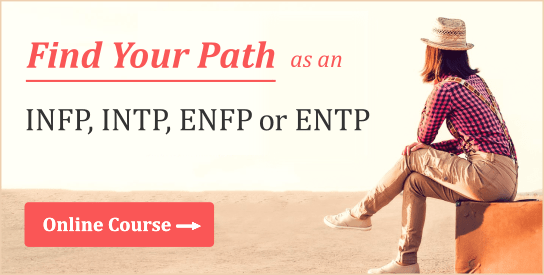
All of the NP personality types (i.e., ENTP, ENFP, INTP, and INFP) utilize Extraverted Intuition (Ne) as well as Introverted Sensing (Si) as part of their “function stack.” Consequently, they are likely to enjoy some degree of similarity and compatibility in relationships. Such compatibility can extend to both their communication styles and lifestyle preferences.
ENTP, ENFP, INTP, INFP Communication in Relationships
As Intuitive types, all NPs gravitate toward more abstract varieties of communication. Namely, they enjoy discussing ideas rather than mere concrete, everyday happenings. As I’ve discussed elsewhere, Ne types use their Intuition more broadly and divergently than Ni types. NPs enjoy bouncing from one idea to the next, making broad, even random, connections within a pool of disparate ideas. Especially when engaged with other NP types, this can occur at a dizzying speed, often leaving non-NP types feeling lost, bewildered, or exhausted. For NPs, however, engaging with other NPs can be captivating, engendering a strong sense of intellectual kinship and mutual understanding.
NPs are also similar in their desire to perceive new ideas from without via their Ne. Most NPs enjoy reading, which serves as one way they can engage in Ne dialogue (in this case, with the writer). Hence, when two NPs are paired in a relationship, they typically enjoy discussing new ideas they gleaned from print or other media. This can serve as a wonderful means of connecting with each other in the forum of ideas.
Since ENTPs and INTPs share all the same psychological functions, the sense of intellectual kinship can be eerily strong. The same holds true for INFP-ENFP relationships. At some point, however, a sense of boredom could creep into the relationship, if the other’s mentation begins to feel too predictable as a result of typological redundancy. This may be of particular concern for INTPs and INFPs, both of whom require a lot of motivation to leave their own inner sanctum in order to commune with others. In other words, there may be such a thing as too much typological similarity in a relationship.
As explored in my post, INFP & INTP Relationship Difficulties, another concern for NP relationships is the potential paucity of extraverted Judgment. Since NPs’ introverted Judging function (i.e., Fi or Ti) comes before their extraverted Judging function (i.e., Fe or Te) in their function stack, they are naturally inclined, especially early in their development, to keep their opinions and conclusions to themselves. This is especially true for INTPs and INFPs, whose extraverted Judging function is in the inferior position. While a reluctance to share one’s judgments can have negative consequences for any relationship, pairing two NPs together (especially two INPs) carries even greater risk. The risk, of course, is that NPs may harbor negative or inaccurate judgments about their partner without opening up those sentiments to dialogue. This can also beget passive-aggressive behavior, which only serves to worsen matters. And while all of this could feasibly occur if NPs were paired with a J-type, there seems a greater likelihood that NPs will come to communicate more directly through engagement with a J-type than with another P-type.
ENTP, ENFP, INTP, INFP Compatibility in Lifestyle
In addition to similarities in intellection and communication, NPs often exhibit similar lifestyle preferences. As I have described elsewhere, Si is conservative with respect to money and the material world. This tends to be amplified in Introverts, making INTPs and INFPs even more financially conservative, in general, than ENTPs or ENFPs are. On the whole, however, all NPs can find contentment with relatively meager living arrangements. Most, for instance, are quite open to utilizing used furnishings. As bricoleurs , they often enjoy using their Ne to find creative ways to make use of already pre-existing Si goods or materials. Consequently, NPs couples can often enjoy financial compatibility with relatively minimal effort.
More than other types, NPs display an affinity for the natural world. Many enjoy hiking, backpacking, camping, or other activities that allow them to “commune with nature.” Such shared interests can prove another great forum for bonding in NP relationships. NJ types, by contrast, are generally far less excited about “roughing it” than NPs are.
In light of the above, there are good reasons to believe that two NP types, especially those who are further along in their personality type development, can enjoy strong compatibility in relationships.
If you’re an NP type and would like to better understand your personality, life purpose, career path, relationships and more, we encourage you to explore our new online course, Finding Your Path as an INFP, INTP, ENFP or ENTP:
